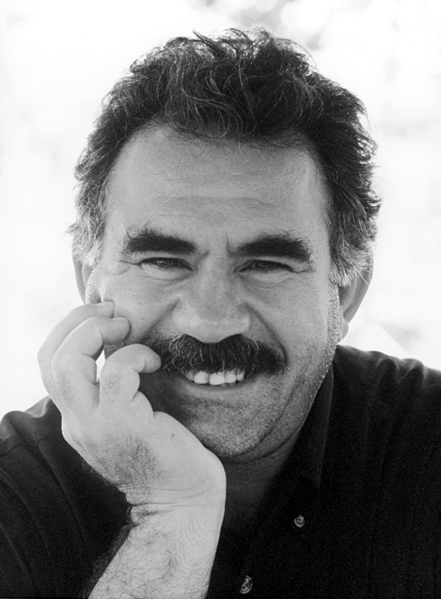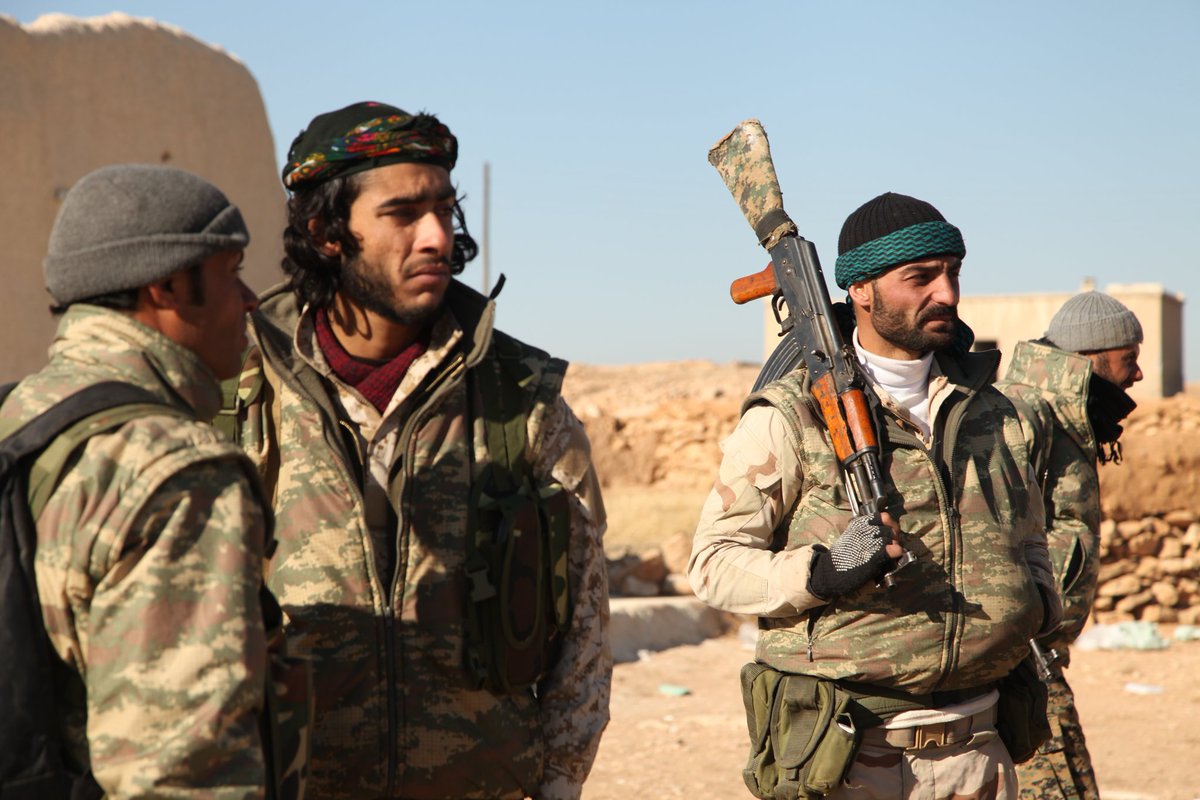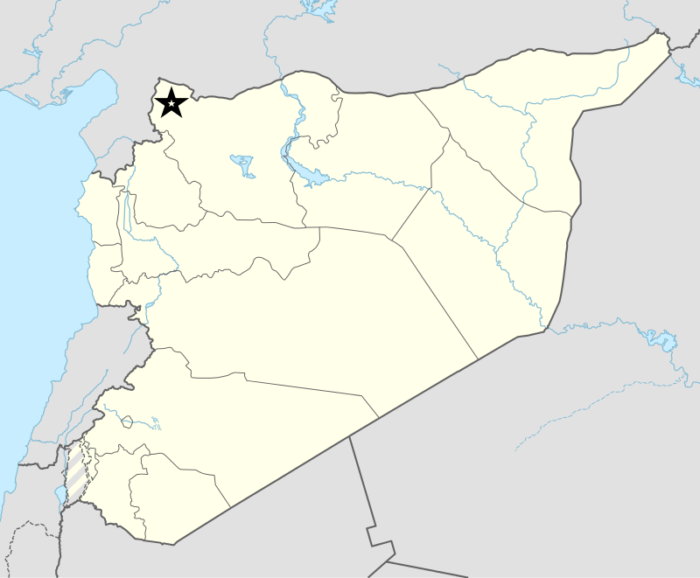Giorgio Cafiero explores Ankara’s various reasons for granting the imprisoned leader of the PKK access to his lawyers for the first time since 2011.
By Giorgio Cafiero
Special to Consortium News
 Since his capture in Kenya 20 years ago, Abdullah Öcalan, the Kurdistan Workers’ Party, or PKK, leader, has been imprisoned in a small Turkish island in the Sea of Marmara called Imrali. Following Öcalan’s extradition to Turkey, he received a death sentence that was commuted following Turkey’s abolishment of capital punishment in 2002. Now Öcalan’s serving a life sentence on terrorism and treason charges. Despite having been locked up since 1999, he retains much influence and still has many followers.
Since his capture in Kenya 20 years ago, Abdullah Öcalan, the Kurdistan Workers’ Party, or PKK, leader, has been imprisoned in a small Turkish island in the Sea of Marmara called Imrali. Following Öcalan’s extradition to Turkey, he received a death sentence that was commuted following Turkey’s abolishment of capital punishment in 2002. Now Öcalan’s serving a life sentence on terrorism and treason charges. Despite having been locked up since 1999, he retains much influence and still has many followers.
Across Turkey, however, he is widely hated and blamed for leading a terrorist organization, which most Turkish sources claim has killed over 40,000 people. Today many are behind bars in Turkey for sharing videos, memes and posts that glorify him and/or the PKK on social media. When Kurdish activists and exiles in Western countries display their solidarity with Öcalan at public rallies, it angers and offends Turkey to a significant degree.
Ocalan Meets His Lawyers
On May 2, for the first time since 2011, Öcalan was granted access to his lawyers, who relayed his messages four days later. He demanded that the U.S.-backed, PKK-affiliated People’s Protection Units, or YPG, which is the dominant force within the Syrian Democratic Forces, respect Turkey’s legitimate interests. He stressed the need for Syrian Kurds to support a unified, democratic Syrian nation-state, calling on the YPG to negotiate with Damascus. Also, with roughly 3,000 people in Turkey reportedly on hunger strikes in 90 prisons across the country demanding that Öcalan be granted family and legal visits, the PKK leader told all his loyalists to end self-harmful activities.
Why did the Turkish authorities decide to end Öcalan’s eight-year isolation?
Obviously, in the short-term, one goal they achieved by granting Öcalan access to his lawyers was getting him to call on Kurdish politicians and activists to end their hunger strikes. But clearly the decision was based on factors extending beyond concerns about the ramifications of hunger strikes in Turkish prisons. From a cynical standpoint, certain observers attributed the move to a potential plan for the ruling Justice and Development Party, or AKP, to secure more votes from Turkey’s Kurdish minority.
Peace with PKK Linked to Syria Deal
Sensitive domestic political considerations aside, Ankara’s grander regional concerns were the driving factors. It seems that Turkey’s assessment is that resolving the conflict with the PKK internally in Turkey would need to be done through a grander deal that simultaneously settles the difficult YPG-related questions in northern Syria.
Please Make a Donation to Our
Spring Fundraising Drive Today!
Officials in Ankara recognize the influence that Öcalan maintains over his loyalists — both those north and south of the Turkish-Syrian border — and the Turkish leadership is possibly seeking to leverage that influence in potential future talks with the PKK/YPG. In fact, officials from Turkey’s state intelligence agency reportedly recently met with Syrian Democratic Forces commander Mazlum Kobane, who is close to Öcalan, in northern Syria. Moreover, Öcalan’s calls for a unified Syria suggest that he could influence the YPG into abandoning aspirations for establishing an independent Kurdish state in northern Syria.
Turkish concerns about the YPG fighting to carve up Syria could ease if there is a deal between Ankara and Damascus following the YPG’s potential integration into the Syrian Arab Army. Such diplomatic breakthroughs could keep Ankara from believing it is necessary to launch a third Turkish military campaign against the YPG, following Operation Olive Branch last year and Operation Euphrates Shield in 2016.
Nonetheless, realistically there are major hurdles that will undermine prospects for progress on this front. Bridging the gulf between demands from both Turkey and the YPG could prove extremely challenging.
While Turkey wants to maintain a military presence for 25 miles into northern Syria, the YPG is demanding a full Turkish military withdrawal from the town of Afrin. It is not guaranteed that demands from both Ankara and the YPG could be met simultaneously.
At the same time, it is unclear what would happen to the Turkish-backed armed Sunni Arab groups in Afrin if Ankara and the YPG end their hostilities, and what role(s) they would play in “post-conflict” Syria, if any at all.
Gulf States Enter Equation
Certain regional factors in play may hinder efforts to resolve the extremely hostile standoff between Turkey and the YPG. As the United Arab Emirates and Saudi Arabia step up their anti-Turkey efforts in Syria, Abu Dhabi and Riyadh have sought to counter the expansion of Turkey’s influence in Syria while becoming key stakeholders in the outcome of this eight-year civil war.
Turkish media outlets have accused both Gulf states of supporting the YPG, fueling anti-Saudi and anti-Emirati sentiments in Turkey. In the aftermath of the Qatar crisis’ eruption in 2017, Turkey’s pro-AKP newspaper, Yeni Safak, published a photo of Emirati, Saudi, and Egyptian officials meeting with their YPG counterparts in an office with a portrait of Öcalan on the wall.
In recent years a host of multifaceted regional issues have contributed to major tension in Ankara’s relations with both Abu Dhabi and Riyadh. These sources of friction include the Libyan civil war, the Qatar crisis, the Jamal Khashoggi murder case, the failed coup plot against Turkey’s government in 2016, the Egyptian coup of 2013, and the recent case of suspected UAE spies in Turkey.
As both the Emirati and Saudi leaders view Turkey as representing a “neo-Ottoman” threat and a sponsor of the Muslim Brotherhood (banned as a terror group in both the UAE and Saudi Arabia) amid a period of growing geopolitical competition in the Horn of Africa and Red Sea, Ankara’s foreign policy appears on a collision course with Abu Dhabi and Riyadh.
Within this context, it appears that both the UAE and Saudi Arabia will likely view the YPG as a useful partner in their efforts to simultaneously challenge both Turkey and Iran’s positions in “post-conflict” Syria. Doubtless, peace between the YPG and Ankara would remove this lever that the Emiratis and Saudis have reportedly been using in northern Syria in order to step up their efforts against Turkey.
From Ankara’s perspective, the UAE’s exploitation of Turkey’s vulnerabilities vis-à-vis the YPG in northern Syria is a threat to Ankara’s core interests in Syria and the greater region. Turkey could deny the UAE an opportunity to use the Kurdish nationalist cause in northern Syria to undermine Ankara if Turkey and the PKK/YPG reach a deal that peacefully resolves Turkey’s decades-old conflict with Öcalan’s group, and more recently its offshoot in Syria.
Giorgio Cafiero (@GiorgioCafiero) is the CEO of Gulf State Analytics (@GulfStateAnalyt), a Washington-based geopolitical risk consultancy.
Please Make a Donation to Our
Spring Fundraising Drive Today!




There are informative details thanks for sharing.
However with the title “Ending Abdullah Ocalan’s Isolation” and later ” why did the Turkish authorities decide to end Öcalan’s eight-year isolation?” question are wrong!
Isolation has not ended, it was a just a meeting of lawyers and Öcalan after 8 years under circumstances of Erdo?an wishes and it doesn’t mean that Isolation is over. That meeting was totally out of Law control and Democratic rules. They just try to put down the pressure in the country and game to see if the Hunger Strikers will stop.
And as a last note; over 7,000 prisoners, many of Kurdish people all around world and of course the beautiful Parlementer- Leyla Güven who starts the Hunger Strike against that lawless Isolation still going on with the Hunger Strike…… after 8 years having 1 hour meeting doesn’t mean that all is over and Turkish authorities have opened a new page!
An informative piece. Thank you.
Two-thirds of all named stars have Arabic names according to American astrophysicist Neil deGrass Tyson and it all happened between 800-1100 AD. And look at the Arab/Islamic world of today! ‘What happened?’ is a compelling question.
That the Kurds might enjoy some freedom in any part of the world has become a nightmare and a phobia for Turkish leaders and most ordinary Turks. Media reports revealed that Turkish officials had pressured Japanese authorities to end teaching of Kurdish at a Japanese university.
I think back to Erdogan’s early years in power, when he was pursuing his “Zero Problems” policy with the countries in the region, and even made overtures to Öcalan and the PKK. Seems ages ago, but it’s never too late for sanity!
This is a really strange article.
It does not even mention Turkey’s affiliation with ISIS, nor its dictator’s membership of the Muslim Brotherhood terrorist organisation.
The problem is Turkey, and it’s regime’s descent into theocratic fascism. The fact that they have openly murdered 40,000 Kurds should provide a clue …
The PKK is serving the US and Israel in factionalizing Turkey and Muslim countries not only today, but since WW1.
You are also ignoring that ISIS was probably a creation of the US as Obama and Clinton were also arming them to overthrow Asad. That alignment suggests that Turkey was merely doing the US and NATOs dirty work.